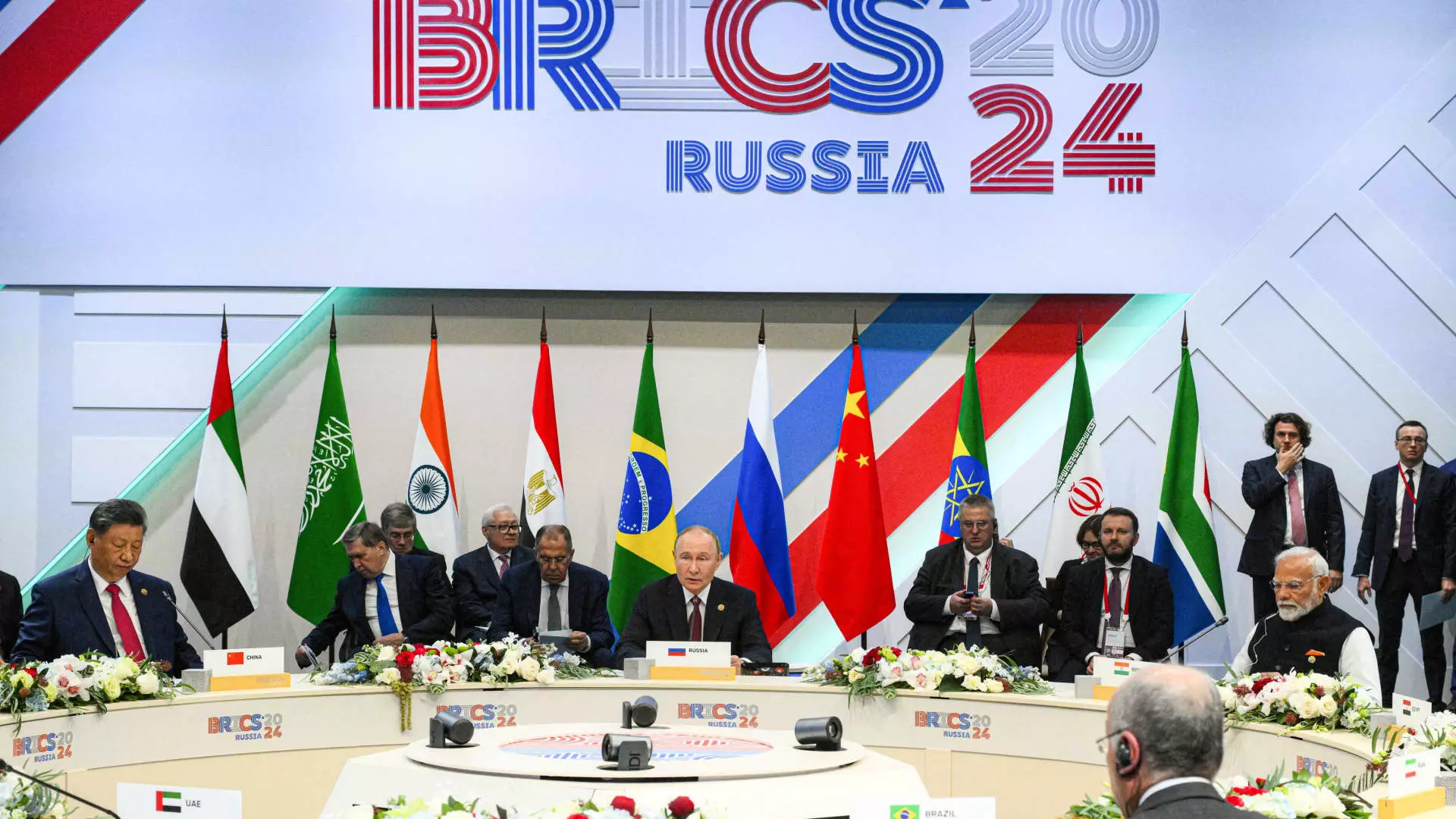In a striking move, President-elect Donald Trump has issued a bold warning that could reshape U.S. economic relations with several nations. By threatening 100% tariffs on a coalition of countries known as BRICS—comprising Brazil, Russia, India, China, South Africa, and others—Trump has signaled a hard line against perceived undermining of the U.S. dollar’s supremacy. This article delves into the multifaceted ramifications of such threats on international trade, economic sovereignty, and the evolving dynamics of global finance.
The Global Stakes: U.S. Dollar Dominance
The U.S. dollar is entrenched as the world’s leading reserve currency, commanding approximately 58% of global foreign exchange reserves, as reported by the International Monetary Fund (IMF). This status is not merely a matter of tradition; it grants the United States significant leverage in international markets. Commodities like oil and gold are predominantly priced in dollars, which raises the stakes for any currency intending to rival its dominance. TRUMP’s articulation of a potential tariff escalation serves as both a warning and a reminder of the extent of U.S. economic influence.
However, the BRICS alliance is increasingly vocal about their grievances regarding this dominance. Nations within this alliance are seeking alternatives, sparking discussions about “de-dollarization.” These countries, weary of U.S. financial hegemony, are exploring trade agreements that could bypass the dollar. Trump’s warnings could serve to catalyze these efforts, potentially accelerating the shift from dollar reliance.
The Psychological Impact on International Relations
Trump’s threats may also disrupt existing diplomatic relations. Economic crises often transcend mere financial implications; they can exacerbate geopolitical tensions. By framing the conversation around tariffs, Trump risks alienating countries that are members of BRICS and those considering joining. The influx of nations applying for membership, including Turkey and Malaysia, reflects a tactical pivot towards a moderated financial alliance designed to counterbalance U.S. influence.
Countries like Russia have taken up arms against what they perceive as U.S. economic oppression. President Vladimir Putin’s comments about the “weaponization” of the dollar illustrate how nations may rally against perceived aggressions, culminating in a coalition that seeks economic independence through alternative trade practices. This tension could unravel established economic ties, pushing emerging economies towards a more united front.
Trump’s proclamation outlines an ultimatum: countries must refrain from creating a currency that challenges the dollar or face dire economic repercussions. This rhetoric raises questions about the future framework of trade agreements, as nations weigh their options in light of potential tariffs. The financial might of the U.S. is formidable, yet the response from BRICS suggests a calculated resolve to seek local alternatives.
As nations like Russia advocate for payment systems outside the established Western framework, the implications of these tariff threats could lead to a fragmentation of traditional economic associations. If countries decide to unify against tariff pressures, the road forward may involve a reevaluation of trade agreements that prioritize collaboration over competition.
Research indicates that, while Trump’s tariff threats represent a significant development, the dollar’s supremacy as the global reserve currency remains secure in the near term. Economic models from institutions, such as the Atlantic Council, suggest minimal immediate risk to the dollar’s dominance. However, historical events remind us that systems as established as the dollar’s can be challenged.
The path taken by BRICS to diminish dollar dependency reflects a broader strategy for economic empowerment. If successful, their initiatives may transition the global economy towards a more multipolar structure, which could have lasting impacts on how trade is conducted. As nations facing tariffs create alternative mechanisms for transactions, the world may witness an unprecedented shift away from dollar-centric commerce.
Donald Trump’s threat of imposing 100% tariffs on BRICS countries serves as a critical juncture in the ongoing narrative of global economics. The interaction between U.S. financial dominance and the aspirations of emerging economies encapsulates deeper tensions in the international order. Whether this will lead to a tangible decline of the dollar’s supremacy remains a subject of debate. However, the world should remain vigilant, as economic decisions are intrinsically linked to broader geopolitical realities. This moment could signify the beginning of a new era of trade dynamics—one that challenges the conventions of the past and redefines the future of international economic relations.


Leave a Reply